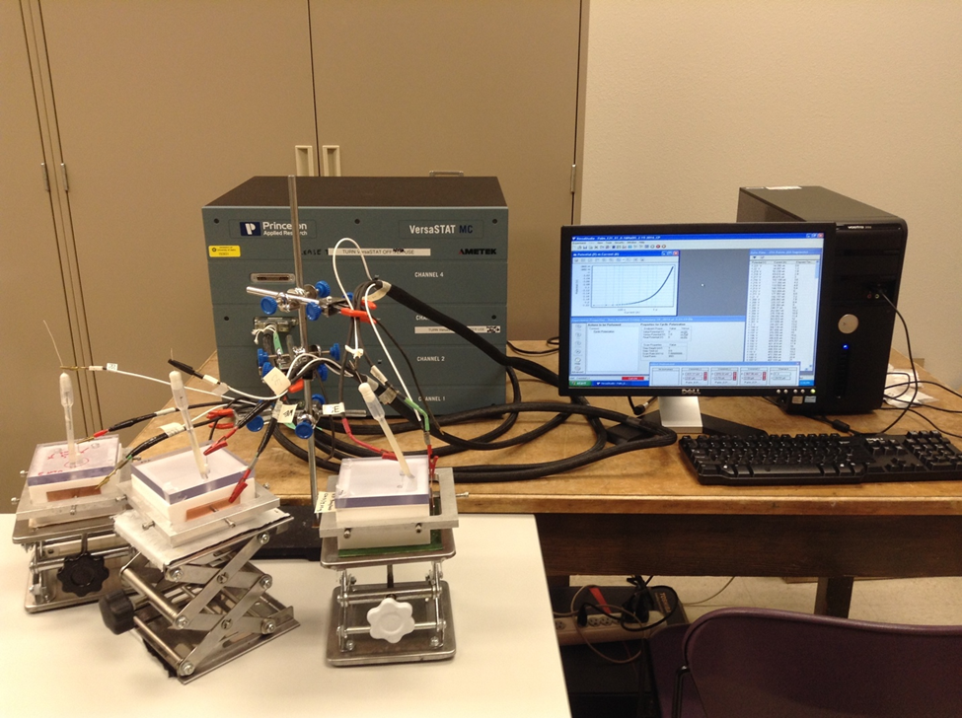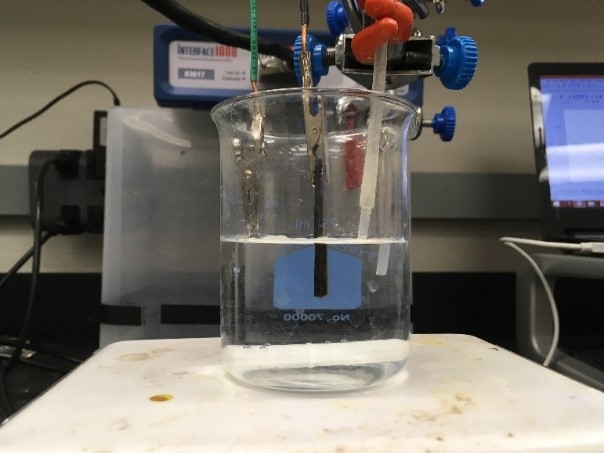Starting in the fall, K-12 schools in Idaho will be allowed to provide in-person classes, according to the Idaho State Board of Education (ISBE).
The board has not released specific reopening plans for universities and colleges, but University of Idaho is planning to host in-person and hybrid classes in the fall — and has hosted in-person classes over the summer.
Before the summer term started for UI, the online course catalogue stated 171 courses, including doctoral and master’s research, internships, practicums, seminars, directed study and normal classes, would be held in person. This was out of 1,162 total offered courses for the summer.
The lecturers in charge of the seminars, classes and directed study opportunities confirmed only 16 classes would include an in-person portion of instruction.
Women’s and Men’s Sports Conditioning (IFIT 107), two courses offered by Director of Athletics Terry Gawlik, has been running since June 15. However, only one student, a football player, took the course over the summer. He has worked on campus with a strength and conditioning coach while following COVID-19-related precautions.
Mechanical Engineering Professor Steven Beyerlein and Assistant Professors Matthew Swenson and Vibhav Durgesh have instructed Mechanical Systems Design I (ME 424) since June 15. The class is required in the mechanical engineering major as part of signature two-semester-long capstone design experience. ME 424 is offered in the summer so students in situations where taking the regular fall and spring only classes aren’t possible can still graduate on time.
According to Beyerlein, students are given a client and then plan, design and execute a project before the end of the course. This summer, students are working on a braille business card printer for the UI Center for Disability Access and Resources, an assistive CPR device for WWAMI and several projects for clients outside UI. All instruction, team meetings and full class meetings are facilitated over Zoom, according to the class website, but sometimes students must come to campus labs and workshops to complete their fabrication work.
“Frequently used tools are our 3D printers and laser cutter,” Beyerlein said. “We also have (two) graduate student that we hired to help with part fabrication on our mills and lathes. They meet with students in small groups to accomplish these goals, but the shop use would not be as extensive as we would normally like.”

WWAMI Associate Director of Curriculum Peter Fuerst has worked alongside a team to organize Triple I (MEDS 501) since June 22. Triple I, which stands for Independent Investigative Inquiry, is a required summer class for first year WWAMI students. The course gives students a chance to work on a research project in any field of medicine, complete a literature review or work with physicians in a local rural community or a UW-affiliated site in a developing country.
“This year, we’re not making it a requirement because some of the health communities aren’t able to host students and some of the research projects aren’t possible,” Fuerst said. “Now having said that, almost all of our students will pursue one of these. The students, I think, are very eager to get back into a clinical setting and serve clinical roles.”
While some students decided to pursue online research-based options, others decided to pursue the few available in-person opportunities. One such student, Seth Dixon is working with University of Washington Assistant Professor Dr. Brittany Barber to learn more about otolaryngology, or the medical specialty on the ears, nose and throat, in Seattle this summer. He is working in person on a research project about melanoma and a literature review on the role of an enzyme on mouth and throat skin cancers.
“I really believe that interpersonal interaction, direct interaction, having to work alongside somebody else, is really a driver for innovation,” Dixon said. “There’s actually a social-psychological theory about this that says that when you’re having these more random collisions, that can increase your productivity. And I just have a better time when I’m with people.”
The UI athletic training master’s program also hosted in-person classes. Eleven classes, AT 504, AT 506-510 and AT 531-535, were held on the Moscow campus. AT 506-509, AT 531-533 and AT 535 had sections which lasted from June 1 until June 19. AT 507-510 and AT 532-534 had sections which began June 29 and will end July 31. AT 504 began June 29 and will end Aug. 7. Lecture-heavy portions of these classes were taught over Zoom, but practical lessons were taught in person.
“We’re a healthcare education program,” Clinical Assistant Professor Matthew Smitley said. “So there’s a lot of skills that we teach and have to assess in person. As a patient, would you like someone performing a full evaluation of your knee, whatever skill that might be, would you be confident in a clinician that would be applying that skill that’s only been assessed virtually?”
All students in the course lived and studied in pairs. So, for practical lessons, students would practice skills they were learning on the other half of their in-class pair. The classes worked in two classrooms in the Education Building and a small gym in the Physical Education Building, all distanced more than six feet away from each other.
At the start of the program, all students were provided a mask and face shield. Before entering a class, the students would check themselves for COVID-19 symptoms, get their temperatures taken and grab a fresh pair of gloves. All classroom surfaces were cleaned with medical-grade or university-provided cleaning solutions between uses.

At least two directed study opportunities have offered in-person options this summer. Directed study, unlike regular classes, are student-driven and often student suggested. Instructors offer directed study courses when students are interested in a topic not covered in normal class offerings. This summer, Architecture Associate Professor Xiao Hu offered Globalization and Architecture (ARCH 502) from May 18 to July 10 while Engineering Associate Professor Krishnan Raja has offered Stainless Steel Corrosion (CHE 599) since June 15.
Hu offered ARCH 502 for Beniya Shakya, an architecture master’s student who will graduate in Aug. The pandemic hindered Shakya’s ability to find a job immediately, so she researched sustainable, low-cost building designs while continuing her job search.
“I’m interested in researching more things that can benefit society and people as a whole and, more importantly, thinking about the people back in Nepal,” Shakya said. “Whenever I’m doing my research, I keep on thinking about what can be done for the people of Nepal, what can be done that would be beneficial to Nepal. I’m trying to learn more from here in the U.S.”
Hu and Shakya usually met over Zoom, but both said it is difficult to discuss and adjust traditionally drawn architectural plans digitally. They occasionally met in the Art and Architecture South building on campus to work on the plans since it was rare for other people to be in the building. They both wore masks, used hand sanitizer and separate drawing tools and practiced social distancing while in the classroom.
Raja is offering CHE 599 for Francis Wobo, a chemical engineering master’s student. Wobo wants to enter the oil industry after graduation and wanted to learn more hands-on skills related to his field. As part of the class, Wobo works in Raja’s lab on campus.
No more than two students are allowed in the lab at a time, but gloves and masks were required before the pandemic, so wearing personal protective equipment has not been an issue. Wobo and Raja meet over Zoom for instruction, so the only in-person portion of the class is lab work.
“This (class) is learning to solve a problem,” Raja said. “And when you do that, sometimes there will be a lot of smaller things you don’t teach in the class, for example there are three different electrodes (involved in these experiments) and the electrodes need to be maintained properly in order to get applicable results. So those experiences are going to come only when you do (it) on your own, not by demonstrations or watching videos.”
The lecturers of the remaining 28 courses listed as classroom meetings on the course catalog clarified their courses were held exclusively online.
ENVS 101, ENVS 102 and NRS 204 were originally scheduled to be held as part of a new program at the McCall Outdoor Science School in coordination with Military and Veterans Services, but the initial program was postponed until next summer.
Lex Miller can be reached at arg-news@uidaho.edu



